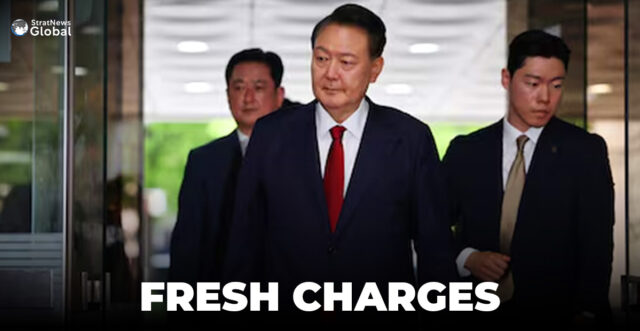South Korea’s ousted President Yoon Suk Yeol appeared in court on Friday for a new trial on obstruction charges, following weeks of boycotting a separate trial over allegations of masterminding an insurrection through a failed martial law attempt.
Yoon, 64, appeared noticeably slimmer and his hair greyer and cropped short, after more than two months out of public view in prison and having refused to attend trial since early July, citing health reasons.
Fresh Charges
The conservative former president faces fresh charges, including obstruction stemming from attempts to block investigators trying to arrest him in January when his powers had been suspended by parliament’s impeachment, and he barricaded himself inside the presidential compound.
The new charges were brought by a special prosecutor who was appointed in June and whose team has widened a probe of Yoon and several former government and military officials.
Yoon, who was removed from office in April by the Constitutional Court, is also being investigated by another special prosecutor who has indicted his wife for corruption.
Yoon has denied all wrongdoing and said it was within his powers as president to declare martial law in December. He has rejected all investigations against him as politically motivated.
The new indictment carries a prison term of more than three years on conviction. Yoon already faces the death sentence or life in prison if found guilty on insurrection charges.
Failed Martial Law Bid
Yoon’s attempted imposition of martial law earlier this year marked a dramatic episode in South Korea’s political landscape.
Following widespread criticism of his administration, Yoon sought to assert control by attempting to declare martial law, a move widely seen as an extraordinary measure to maintain authority amid mounting opposition.
The plan, however, failed to gain traction, as key institutions and public opinion resisted the attempt, highlighting the strength of South Korea’s democratic framework and rule of law.
The failure of the martial law attempt had significant consequences for Yoon personally and politically.
His actions led to legal scrutiny, with Yoon facing allegations of insurrection and obstruction for attempting to circumvent normal legal and constitutional processes.
The episode further eroded public confidence in his leadership and intensified political tensions within the country.
(With inputs from Reuters)





